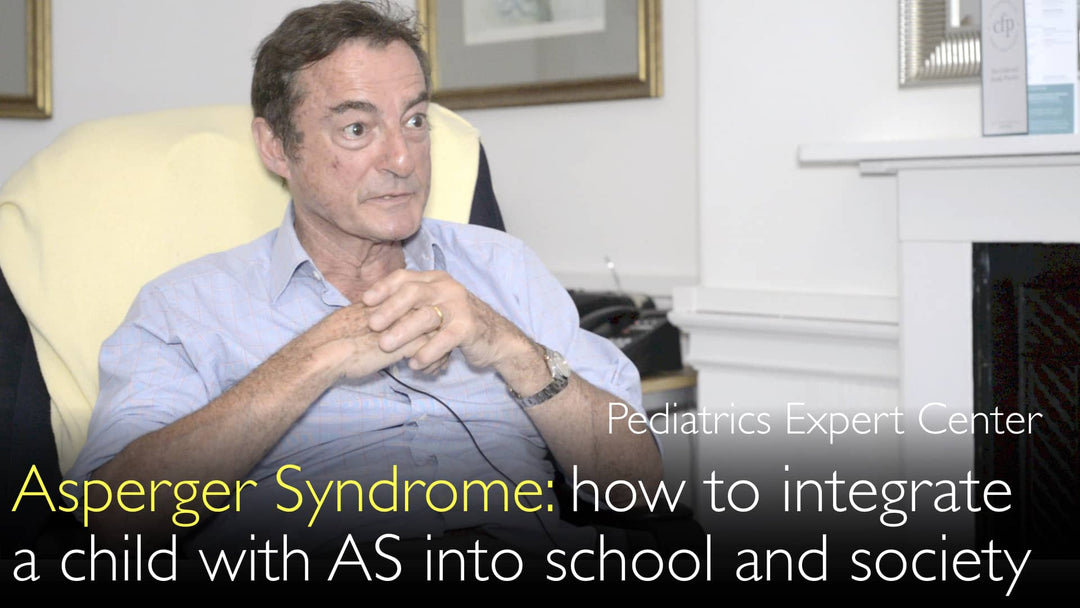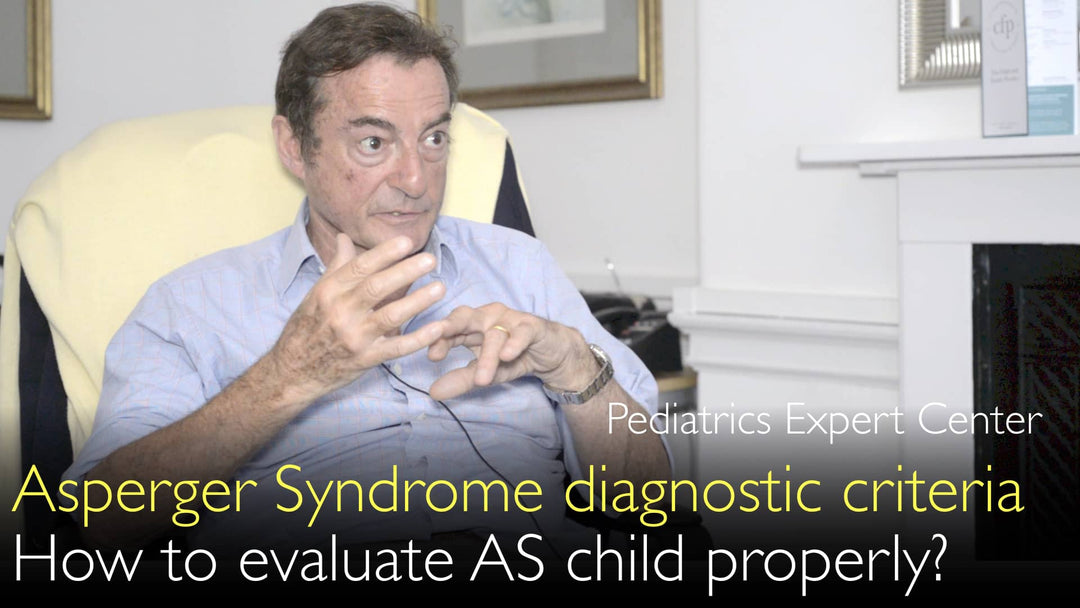Leading expert in holistic ADHD treatment, Dr. Sanford Newmark, MD, explains how to diagnose attention deficit hyperactivity disorder correctly. He details the subjective nature of ADHD diagnostic criteria. Dr. Sanford Newmark, MD, highlights the limitations of standardized questionnaires. He emphasizes the critical importance of a comprehensive patient history. Sleep apnea and other conditions can mimic ADHD symptoms. A thorough evaluation prevents over-diagnosis and misdiagnosis. Medical second opinions ensure treatment is necessary and correct.
Accurate ADHD Diagnosis: Criteria, Evaluation, and Avoiding Misdiagnosis
Jump To Section
- ADHD Diagnostic Criteria Explained
- Limitations of Standardized ADHD Forms
- Comprehensive ADHD Evaluation Process
- Remote ADHD Diagnosis Possibilities
- Common Conditions Mimicking ADHD
- Role of Medical Second Opinion
- Full Transcript
ADHD Diagnostic Criteria Explained
ADHD diagnostic criteria center on a core set of behavioral symptoms. Dr. Sanford Newmark, MD, clarifies that the essential definition involves significant inattention and/or hyperactivity-impulsivity. These symptoms must cause a clear negative impact in two or more settings, such as at home and at school. Dr. Anton Titov, MD, notes that this places ADHD on a behavioral spectrum. There are no definitive lab tests, MRI scans, or other objective biomarkers for an ADHD diagnosis.
Limitations of Standardized ADHD Forms
Standardized forms are a common but limited tool in the ADHD diagnostic process. Dr. Sanford Newmark, MD, mentions specific examples like the CADDRA and Vanderbilt forms. These questionnaires ask parents and teachers to grade a child on traits like trouble focusing, disorganization, and impulsivity. Dr. Sanford Newmark, MD, states that while these forms should be part of a workup, they are highly subjective. They focus solely on behavioral traits and fail to investigate underlying causes for those behaviors.
Comprehensive ADHD Evaluation Process
A truly accurate ADHD diagnosis requires a meticulous and patient evaluation. Dr. Sanford Newmark, MD, stresses that the mainstay of diagnosis is a carefully constructed history. This process takes considerable time and involves gathering information from multiple sources. Dr. Anton Titov, MD, discusses the importance of this holistic approach. A specialist must look beyond the checklist to understand the whole child and their environment.
Remote ADHD Diagnosis Possibilities
Remote consultation offers a potential avenue for ADHD diagnosis and second opinions. Dr. Sanford Newmark, MD, confirms that diagnosing ADHD remotely is possible to a certain extent. This method allows a specialist to conduct lengthy interviews with parents, the child, and teachers. Dr. Newmark tells Dr. Anton Titov, MD, that a remote specialist can effectively review a previous evaluation. They can identify gaps in the diagnostic process, such as unasked critical questions.
Common Conditions Mimicking ADHD
Many medical and environmental issues can present with ADHD-like symptoms, leading to misdiagnosis. A primary example given by Dr. Sanford Newmark, MD, is sleep apnea. Enlarged tonsils and adenoids or allergies can disrupt sleep, resulting in daytime inattention and hyperactivity that looks identical to ADHD. Dr. Sanford Newmark, MD, explains that standardized forms do not screen for these alternative causes. Other factors, like a poor fit between a child and their teacher, can also be mistaken for a neurobehavioral disorder.
Role of Medical Second Opinion
Seeking a medical second opinion is a powerful tool for confirming an ADHD diagnosis. Dr. Anton Titov, MD, highlights that this step ensures the chosen treatment is correct and necessary. A specialist providing a second opinion, like Dr. Sanford Newmark, MD, scrutinizes the initial diagnostic workup. They verify that all ADHD diagnostic criteria were properly followed and that confounding conditions were ruled out. This process is crucial for preventing the over-medication of children who may not have ADHD.
Full Transcript
ADHD diagnostic criteria are important to observe. What questions during ADHD diagnostic evaluation are often missed? Is it possible to diagnose attention deficit hyperactivity disorder by remote consultation? A leading expert on holistic treatment of ADHD discusses how to follow diagnostic criteria for ADHD.
Dr. Anton Titov, MD: This brings us to the question. What are the diagnostic criteria for ADHD? What is the minimal testing necessary to establish an ADHD diagnosis? Many children can be characterized as having a certain impulsivity or certain inattention. As you previously mentioned, ADHD is a spectrum. Almost all cases of ADHD fall alongside this spectrum of inattention and hyperactivity.
What are the minimal diagnostic criteria for ADHD?
Dr. Sanford Newmark, MD: The minimal diagnostic criteria for ADHD are inattention and hyperactivity. But you don't have to have the hyperactivity and impulsivity. Hyperactivity and impulsivity cause impact both at home and at school. That is really the definition.
Dr. Anton Titov, MD: How do you figure out if that's true?
Dr. Sanford Newmark, MD: It's all history. There are no lab tests or MRI or any other tests that are necessary for the diagnosis of ADHD. It's very subjective. We do have these kind of standardized forms that teachers and parents will fill out. There is the CADDRA form and the Vanderbilt form. Forms ask a number of questions about these ADHD-related traits.
Does your child have trouble focusing? Does your child lose things all the time? Is your child disorganized? Is he always getting up from his seat? Then for each of these forms there is standardized grading criteria. That should be part of ADHD work up, but it's not the whole thing. Forms are very subjective.
Dr. Anton Titov, MD: Is it possible to diagnose ADHD by remote consultation? Or perhaps for specialists such as yourself to assess somebody else's evaluation of a child? Can you arrive at the certainty of the ADHD diagnosis by consultation online or remotely? Can you refute the diagnosis of ADHD by remote consultation? Because you mention a lot of ADHD is over-diagnosed or misdiagnosed.
Dr. Sanford Newmark, MD: To a certain extent you could diagnose ADHD remotely. Sometimes you have the time to talk not only with the child, but also to the parents and teachers. You may talk to other people who interact with the child. There is a certain value in seeing a child.
The second part of your question is really interesting. The specialist might be able to help very much here. An ADD expert can make sure that kids aren't over-diagnosed with ADHD. An ADHD specialist can help by looking at what's been done and saying, "Oh, wait, did you ask about that? Or what about this problem? Or you forgot to ask this. Are they sleeping at night?"
For example, sleep apnea can cause ADHD sometimes. Sometimes you are obstructed from big tonsils and adenoids, allergies, and you don't sleep well—that can look like ADHD. You can find that out. You can then assess whether a child has been asked that question, whether a physician has looked at that issue. You can assess if the ADHD diagnosis has been made carefully or not.
Dr. Anton Titov, MD: Such questions are perhaps part of the standardized questionnaires that are used in the ADHD diagnosis?
Dr. Sanford Newmark, MD: No, they are not part of standardized questionnaire. The standardized questionnaires only focus on the behavioral traits that are diagnostic of ADHD. They don't ask about those other things, unfortunately.
Dr. Anton Titov, MD: Carefully constructed history is the mainstay of the ADHD diagnosis. It remains so.
Dr. Sanford Newmark, MD: Exactly!







